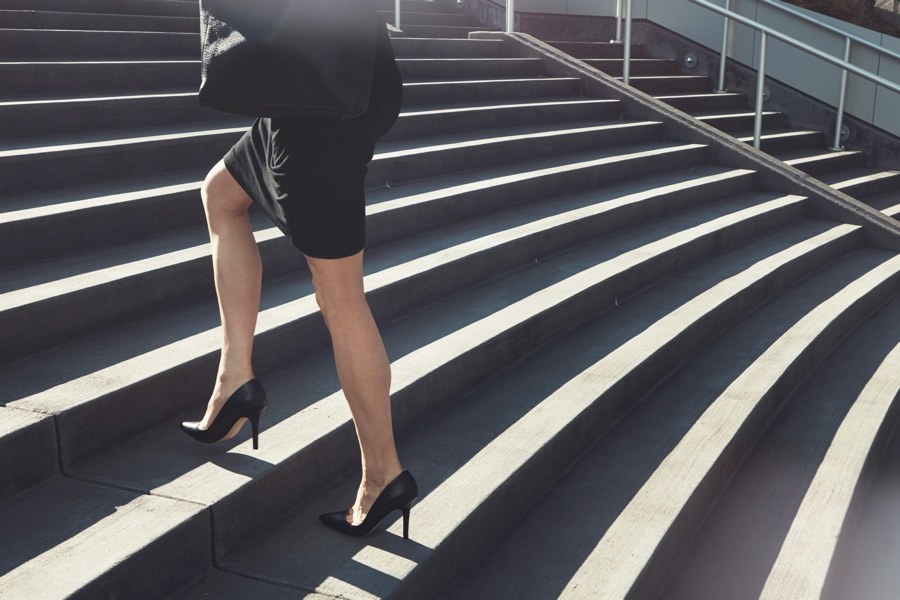How to Navigate Your Office’s Summer Dress Code
Warm weather brings ice cream, sunshine, exposed skin and the occasional office dress code violation. Four Philly experts tell us how to navigate the often complex rules of office workwear.

Getty Images | gradyreese
The annual reminders of office dress codes during warmer months have begun to circulate. A typical code for a business casual office might advise against pieces like shorts, sweatpants, strapless tops, crop tops, open toe sandals, exposed bra straps and clothing that is too tight or too short. But despite these long lists about what’s unacceptable, there are always gray areas. For example, what’s too tight or too short can vary widely by body type.
We talked to a few Philly professional attire experts and HR professionals to understand how to best navigate these often complex rules. Here’s their advice:
Ask questions, advises Brittany Bronson, owner of Rebrand Career Consulting
I definitely think women have to go through more hoops to dress professionally. It’s getting warmer. We might want to wear a dress, but we have to think, how does it fit in several places? How does it fit my waist? How does it fit my hips? Is it going to rise when I sit down?
I think for black women some of the worry is wanting to always look professional. Hair is big for black women in the summer. We don’t want to flat iron our hair all summer. Unless we want to wear hot weaves or hot wigs all summer, we are sometimes forced into these conforming and uncomfortable positions in order to be respected and valued in the workplace and meet the dress code.
I tell black women to be aware. If the summer is approaching and you’re nervous to wear braids, go to your HR. It might be a length issue. It might be you can only wear them in a bun. Get clarity on what is the appropriate way to wear them in this space.
Good news: we’re getting more inclusive, says Anne Ravert, vice president of human resources for executive search firm Diversified Search
I think [dress code policy] is an area of HR and employee relations that is going to change a lot. As a society, as we get more open to the fluidity that’s happening all around us in gender, there’s going to be less of some of these things that are more male or female.
For instance, our handbook has “pants and suits.” We don’t talk about men and women. It just says pants and suits and then talks about things in general. I think within the next year or two, it’s going to be more gender neutral.
I definitely have an open door policy. If someone has a question about the dress code, [I want them to] come to me. One of the things that I do like people to do is come with things that they want to change.
Wear what works for you, recommends Rakia Reynolds, co-founder of clothing brand EVRYDAY JANE
As a mom, I am completely time challenged. I have three kids. I have a husband. For me it’s always been what I put on at 6 a.m. is what I’m going to have on before I take my clothes off at 10 p.m. I live vicariously sometimes through the people at [my PR firm] because they’ll [say], “Oh, I’m going to get changed to go out after work.”
I’ve got to keep this same thing on all day. It has to inspire me. I created EVRYDAY JANE for people whose lives are in motion. It’s designed for people that work in offices today.
We should start looking at the people that are wearing suits and ties and heels. Is it accommodating for your lifestyle?
Formal wear has its perks, suggests Robert Srolis, CEO of career management and executive search firm Navigator Resources
In the 90s, when companies started doing corporate casual Fridays, that was the beginning of the pendulum swing to the change of these different dress codes.
[My office] decided to go corporate casual on Fridays. I noticed within 90 days, our productivity on Friday went down by 40 percent. Play clothes became always-play clothes. I think [employees] lost their focus. They were in a casual mindset.
I really believe that your journey is going to be dictated by the way you carry yourself. It’s your attire that becomes how you’re regarded. It’s taking pride in who you are. Women should never wear, for example, a tight, short skirt or plunging necklines. A male should never wear khakis that are not ironed or jeans that have holes in them, if it’s more of a relaxed environment.


